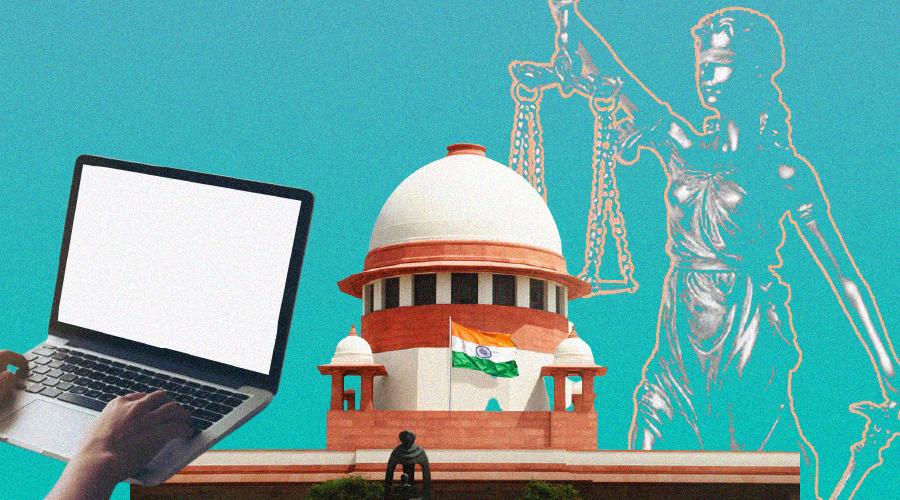SC’s translation projects raced ahead in 2023 as retd. HC judges and law clerks help AI (The Hindu)

- 01 Jan 2024
Why is it in the News?
The Supreme Court’s monumental project of translating all of its 36,000 judgments into Scheduled Languages achieved unprecedented speed in 2023, with the E-SCR portal starting with just 2,238 translated judgments in January and ending the year with over 31,000.
Background:
- In 2023, the Supreme Court of India embarked on a groundbreaking venture to translate its extensive archive of 36,000 judgments into Scheduled Languages.
- This innovative initiative, powered by collaboration between retired High Court judges, law clerks, and artificial intelligence, has made significant strides.
- However, concerns linger regarding the practical application of these translated judgments and the absence of a standardized legal vocabulary across diverse regional languages.
- The launch of the E-SCR portal in 2023 marked a modest beginning with 2,238 translated judgments in January, reaching a commendable milestone of over 31,000 rulings translated by the year's end.
- Recent statistics reveal that Hindi leads with the highest number of translated judgments at 22,396, followed by Punjabi (3,572), Kannada (1,899), Tamil (1,172), and Gujarati (1,112).
- While the translation speed witnessed a significant improvement in 2023, legal experts express concerns about the practical utility of translated judgments, particularly when High Courts, except in the Hindi-speaking States, cannot conduct proceedings in regional languages.
What is the Supreme Court Vidhik Anuvaad Software (SUVAS)?
- SUVAS was introduced in November 2019 by the then-Chief Justice of India (CJI) S.A. Bobde.
- It was created to encourage and ensure the use of regional languages in judicial proceedings.
- It is an artificial intelligence (AI)--trained machine translation tool.
- Constitutional Standing: While Article 348(1)(a) of the Indian Constitution mandates that proceedings in the Supreme Court and every High Court be conducted in English, Article 348(2) provides a provision.
- It allows a State Governor, with the President's consent, to authorize the use of Hindi or another state language in the High Court of that particular State.
- In this context, SUVAS is vested with authority under Article 348, serving as a pivotal tool to promote linguistic diversity within the constitutional framework.
